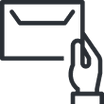Today, we honor non-binary people and the diverse identities within the LGBTQIA+ community. This day brings much-needed visibility and reminds us of the importance of inclusion and respect— not just today, but every day.
Understanding Non-Binary Identities
Non-binary people don’t identify strictly as male or female. Some identify as both, neither, or somewhere along the gender spectrum. Recognizing this helps challenge outdated ideas about gender and opens up space for everyone to express themselves authentically.
What Does Non-Binary Mean?
Being non-binary simply means someone doesn’t see themselves solely as a man or a woman. It’s an umbrella term that can include identities like genderfluid, agender, and bigender. Using respectful language and correct pronouns is a basic way to show consideration.
Beyond the Binary
Gender isn’t just two categories. It’s a broad spectrum. Understanding this helps us appreciate the full diversity of human experience.
The History of International Non-Binary People's Day
This day was first observed in 2012, started by activists who wanted to increase visibility for non-binary people. Since then, it’s grown into a global occasion— proof of rising awareness and acceptance.
Why Representation Matters
When non-binary people see themselves represented in media, culture, and leadership, it sends a message that their identities are valid. Representation also helps combat isolation, boosts mental health, and challenges harmful stereotypes.
How People Celebrate
International Non-Binary People's Day is marked by local events, parades, workshops, and online campaigns. These celebrations offer connection, education, and visibility. They also give non-binary people safe spaces to share experiences and build community.
Supporting Non-Binary People Year-Round
Respect doesn’t end after today. Simple everyday actions— like using someone’s correct pronouns, or opting for gender-neutral language— make a difference.
Ask, don’t assume. Saying, “My pronouns are __. What about you?” normalizes sharing pronouns and prevents mistakes.
If you slip up, correct yourself and move on. This shows you care about getting it right. Creating inclusive environments at work, school, and in community spaces helps non-binary people feel safer and more welcome.
Challenges Non-Binary People Face
Non-binary people often navigate legal systems that don’t recognize their identities, making it hard to update IDs or official documents. Many also face barriers in healthcare, with providers lacking training in gender-affirming care. Discrimination is common— in workplaces, classrooms, and public spaces.
At work: Using the wrong name or pronouns, or failing to provide all-gender facilities, contributes to exclusion.
At school: Non-binary students are more likely to be bullied and less likely to have supportive adults in their lives.
Addressing these issues isn’t just about kindness; it’s about fairness and equal rights.
Looking Ahead
International Non-Binary People's Day is a reminder that non-binary people deserve respect, recognition, and equal treatment— every day. By learning, speaking up, and creating inclusive spaces, we help build a society where everyone can live openly and authentically.







